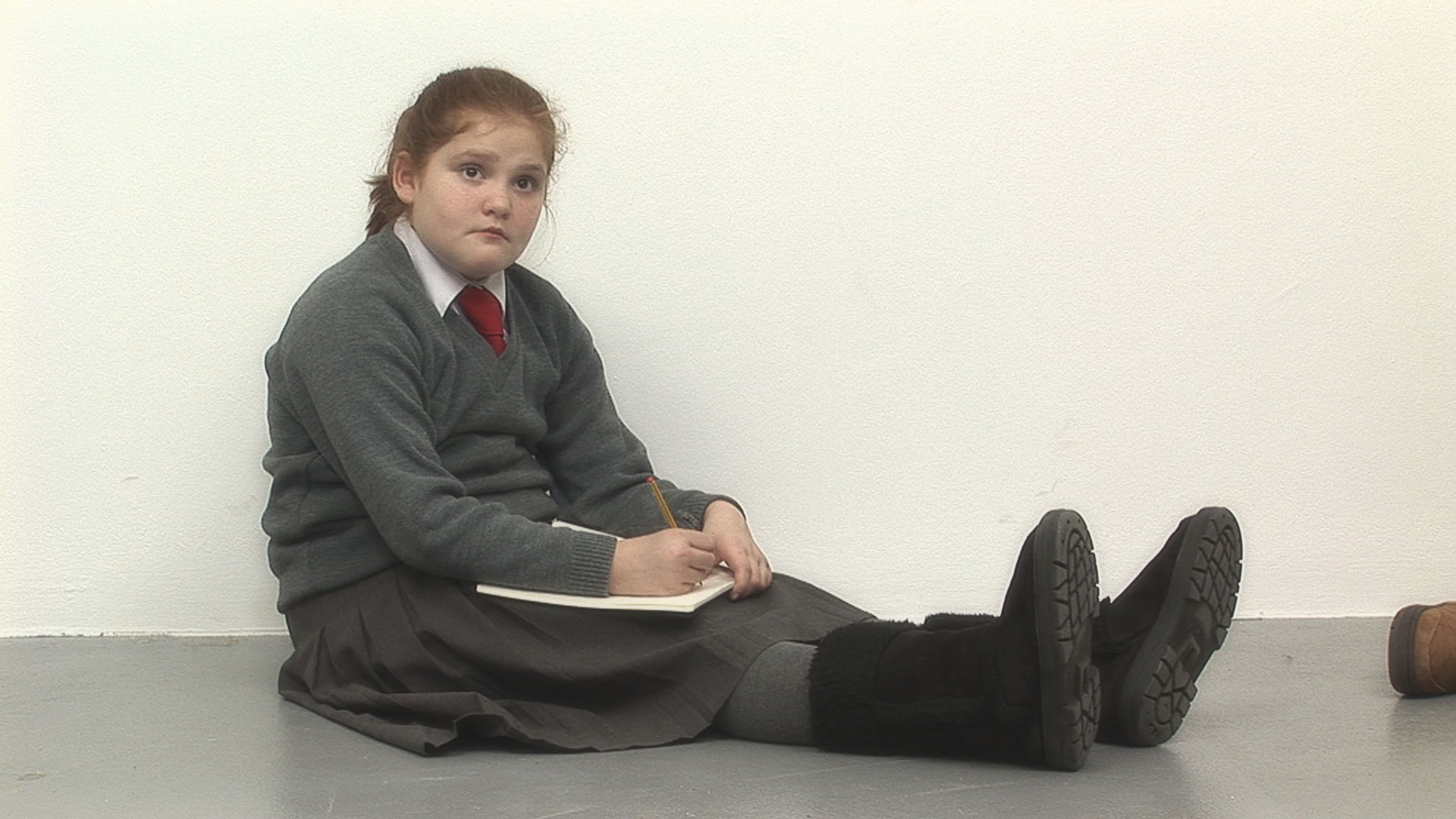We have heard this show’s fundamental message many times. Try again. Fail again. Fail better. (The introductory wall text reheats that crumb from the Samuel Beckett cracker-barrel.) Another pseudo-palliative you may have heard, no doubt from your mother when you’ve flunked something or been dumped, is ‘what’s for you won’t pass you by’. This show may well pass you by if you can’t make it to Hamburg; but don’t worry, because it’s highly likely you have seen these canonical videoworks (many from the early 1970s) several times before.
We start, unsurprisingly, with Bas Jan Ader, the artworld’s patron saint of snafus. Watch him again and again swerve his bicycle into a canal in Fall 2, Amsterdam (1970). This daffy dip does not feel like failure. This was deliberate self-harm, a calculated error and a successful gesture about stupidity. Ader loved a carry-on, a stramash; he was a slapstick merchant up for the splash. He was no Donald Crowhurst, the figure referenced here in Tacita Dean’s film Disappearance at Sea I (1996). Crowhurst, who, like Ader, was swallowed up by the ocean, really was a failure, because he had every intention of success. True failures are intent on victory: that’s why their failures are so poignant. Ader, most of the time at least, wanted to screw up. In one sense he was not dissimilar to those jerks that climb a wintry Ben Nevis wearing plimsoles and a cagoule, only to set off a frantic helicopter rescue. One wonders if Ader may have been, in Fitzgerald’s words, careless with other people’s lives. He certainly was with his own.
This show seems more concerned with carelessness and rampant ego than noble losers and their attempts at glory. Tracey Emin, that paragon of British triumphalism, is here with her film Why I Never Became a Dancer (1995). This is more a work of revenge against predatory pricks than an analysis of her failure as a bopper. Time, and Emin’s historical support for the Conservative party, have lent an ugly cast to this work: it now seems to say (maybe in a Michael Caine accent) something like, ‘I’ve pulled myself up by my bootstraps and it’s arseholes like you who remain on benefits.’ Fischli/Weiss’s overexposed The Way Things Go (1986–7) has more in common with the kids’ game Mouse Trap than with grand notions of defeat. The film is as pointlessly reiterated here as The Great Escape (1963) is on TV. (Now there was a failure!) John Baldessari’s whimsical Teaching a Plant the Alphabet (1972) is another gesture of uselessness, as genuinely funny as the Monty Python fish-slapping dance and just as profoundly daft. Elsewhere, Rineke Dijkstra’s Ruth Drawing Picasso, Tate Liverpool (2009) is a cute video portrait of a wee soul in Ugg boots trying to copy Dora Maar weeping. You can’t in all seriousness talk of an eleven-year-old ‘failing’ here – she’s only doing her best! Maybe she’ll be the Emin of 2025, win the Turner prize and stick the finger up at us all.
Annika Kahrs’s Strings (2010) has a quartet swapping instruments, but their idea of failure mocks this viewer’s limited musical abilities. There’s smugness here, as with professional footballers bemoaning their double-figure golf handicap. Christoph Schlingensief ’s Siegfrieds Sturz (1999), shown in the lift, is a 14-second loop of an accidental fall. That’s not reassuring in a lift. German humour, then: no laughing matter. Oddly there is no space here for Martin Kippenberger, that echt German klutz. This show about failure, in short, is not a success. A fake profundity is proposed, that direst of clichés and delusions – if at first you don’t succeed, try, try, try again.
This article was first published in the Summer 2013 issue.
